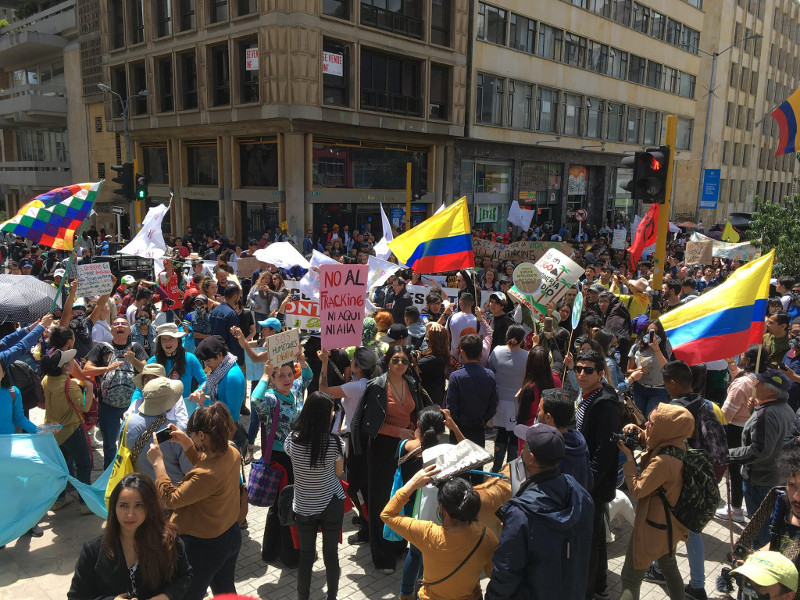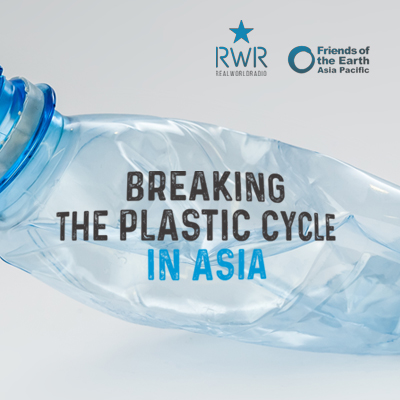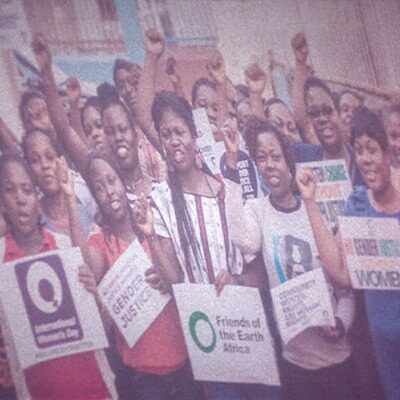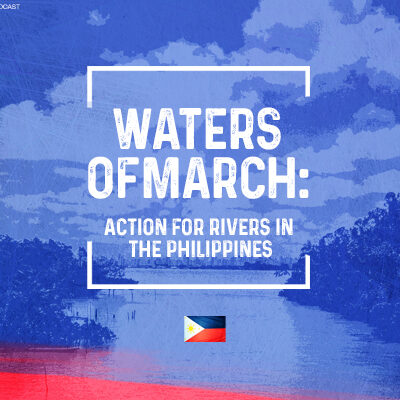THE STRUGGLE AGAINST FRACKING, THE DEFENSE OF LIFE
Opinion piece by CENSAT Agua Viva - Friends of the Earth Colombia
 CENSAT Agua Viva - Amigos de la Tierra Colombia.
CENSAT Agua Viva - Amigos de la Tierra Colombia.
The “11th March in defense of water, life and territory” and against “fracking” and polluting mining took place on June 7th. Approximately 70 municipalities with over 300,000 people participated, and 130,000 of them met in Ibagué.
The “March” was first developed in Ibagué after an initiative of the Environmental Committee of Tolima and this year it was also organized by the National Environmental Movement and the Alliance Colombia Free from Fracking, to defend and respect popular consultations and municipal agreements where tens of municipalities have decided to ban extractive projects: mining, oil, “fracking” and dams. In order to add up to the pedagogical and political work carried out by the Environmental Committee of Tolima, Cosajuca and other organizations of Tolima around the impacts generated by big mining, this year the March also expressed a strong rejection against “fracking”.
“Fracking” is the expression of a limitless model that is willing to sacrifice whatever it takes in order to obtain more and more oil or gas. This struggle goes beyond the conventional concerns because its message is clear: “They are coming for everything, whatever it takes”. It is a struggle for life and the territory against their attempts to extinguish all of us. Therefore, this resistance transcends political differences and geographical limits under the slogan “No to Fracking neither here, nor there, neither today, nor ever”.
In Colombia, the opposition to fracking started in 2013, when a small group of organizations, among them CENSAT – Agua Viva, the Collective for the Defense of Sugamuxi Province and the Gramalote del Meta Project, decided to organize the “First National Day against Fracking” and warn about the risks of the implementation of this technique in the country.
This technique is being more and more discussed at national level. One of the key aspects of this struggle was the creation of the Alliance Colombia Free From Fracking in September 2016 amid a huge mobilization in San Martín, Cesar, during the “Second Day against Fracking” called by tens of organizations. During that day, the organizations denounced the policies and programs that promote this harmful practice, and they supported the initiatives in defense of the territory that were gaining strength in Magdalena Medio, where the first pilot projects were planned.
Here it is important to highlight the role of the resistance in Cordatec, an organization of San Martín, which in a short period of time managed to raise the voices at national level and even be present at international level. This is how from August 28 to September 1, 2018, the organizations held an “International Day of Territories against Fracking in Latin America”, with the presence of experts from this region and the US.
Currently, the Alliance Colombia Free from Fracking is an articulation that has managed to gather around 90 environmental organizations, unions, academics and social processes in defense of the territory, in order to stop “fracking” in the country, with the use of different legal, political, communication and social mobilization strategies.
The actions and mobilizations that have taken place in the past years in the country, especially on June 7th, which had the support of world-renowned actors, actresses and singers for the defense of water, life and the territory are a clear example of what environmental activist Samuel Sossa identified in its book “Global Resistance against fracking. The awakening of citizens against the climate and democratic crisis” as a citizen battle, “a rebellion of citizens protecting their territory, their water, their way of living” (1), without necessarily having an activist past.
The victories of the Alliance Colombia Free From Fracking and of each of the organizations gathered there (the suspension of the law that enables fracking by the State Council and the widespread political positions to ban it) encourage us to continue with this struggle. However, we need to remain alert and active, because the attacks continue, so mobilization and opposition on the streets will have to increase and persist in time against fracking projects, gas deposits in ultra-deep waters of the Colombian Caribbean region and the expansion of the extractive frontier.
(1) https://www.ecologistasenaccion.org/30037/libro-resistencia-global-al-fracking/






